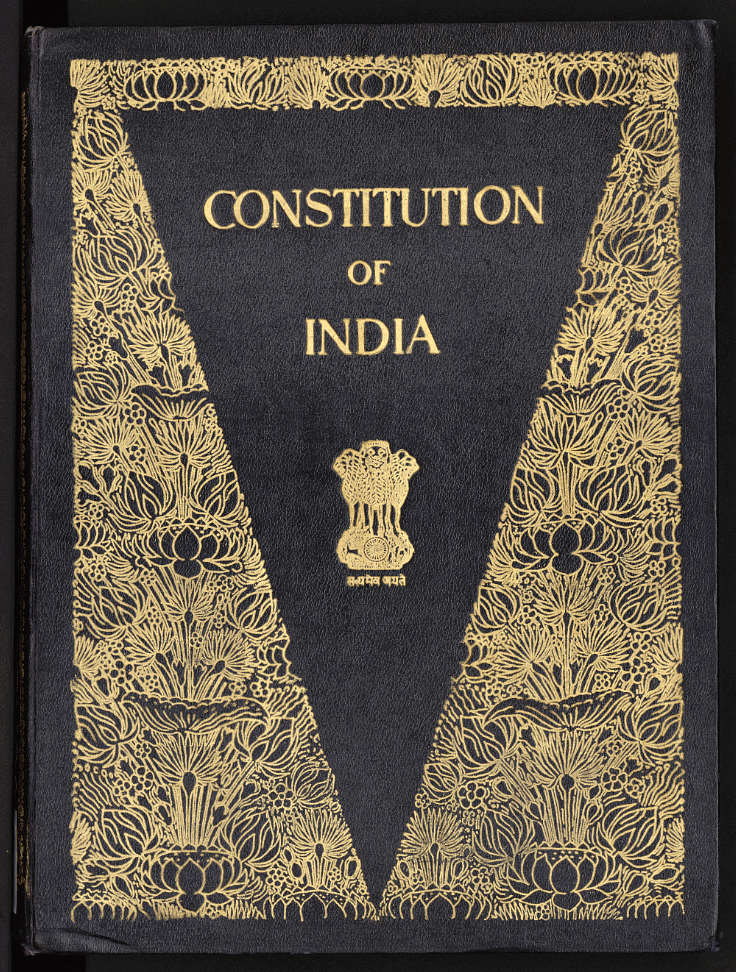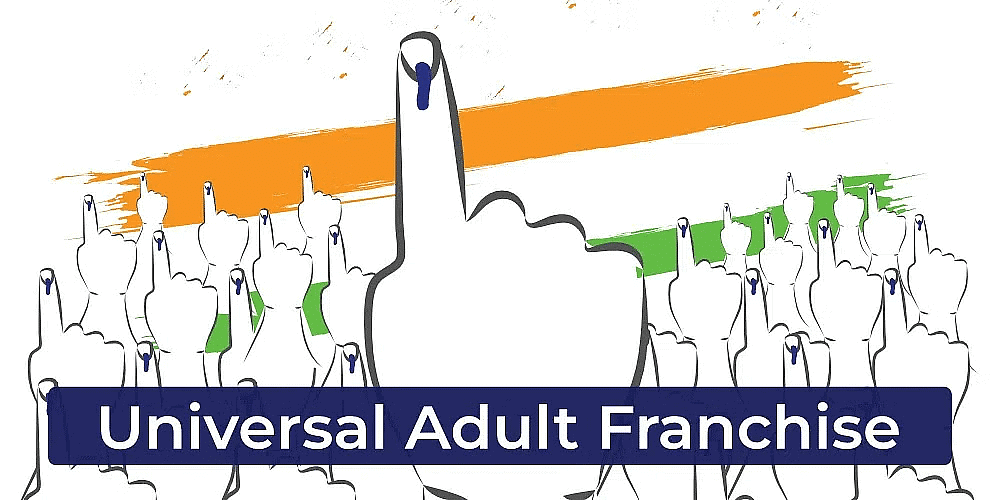The Indian Constitution Class 8 Worksheet Civics Chapter 1
| Table of contents |

|
| Multiple Choice Questions (MCQs) |

|
| Fill in the Blanks |

|
| True/False |

|
| Very Short Answer Questions |

|
Multiple Choice Questions (MCQs)
Q1: What defines the set of rules to govern the country?
A) Preamble
B) Sovereignty
C) Constitution
D) None of these
Ans. C) Constitution
Q2: What is the purpose of a constitution in a democracy?
A) To establish guidelines for decision-making by political leaders.
B) To ensure fairness and protection for all individuals and groups.
C) To prevent the erosion of citizen rights and freedoms.
D) All of the above.
Ans. D) All of the above.
Q3: Which key feature of the Indian Constitution allows for the presence of multiple levels of government within the country?
A) Democracy
B) Federalism
C) Autocracy
D) Monarchy
Ans. B) Federalism
Q4: What are the Fundamental Rights provided by the Constitution of India?
A) Right to Equality
B) Right to Freedom
C) Right against Exploitation
D) All of the above
Ans. D) All of the above
Q5: Which one of the following is not a Fundamental Right under the Indian Constitution?
A) Right to Vote
B) Right to Equality
C) Right to Freedom of Religion
D) Cultural and Educational Rights
Ans. A) Right to Vote
Fill in the Blanks
Q1: The Indian Constitution ensures that no citizen can face discrimination based on religion, race, caste, gender, or place of birth.
Q2: The Constitution of India was adopted on January 26, 1950.
Q3: Dr. Ambedkar was the Chairman of the Constitution drafting committee.
Q4: The Indian Constitution declares India to be a sovereign, democratic republic.
Q5: Universal adult suffrage is guaranteed by the Constitution of India to allow citizens to elect their representatives.
True/False
Q1: The Indian Constitution was drafted by a committee led by Dr. Ambedkar over a period of three years.
Ans. True
Q2: The Constitution only provides for the separation of powers among the judiciary, the executive, and the legislature.
Ans. True
Q3: The right to privacy is explicitly mentioned as a Fundamental Right in the Indian Constitution.
Ans. False
Q4: The Indian Constitution was written in a single language.
Ans. False
Q5: The Indian Constitution can be amended to address new political concerns.
Ans. True
Very Short Answer Questions
Q1: What do you understand by monarchy?
Ans. Monarchy is a form of government in which final authority rested with the King.
Q2: What is a "State"?
Ans. The State refers to a political institution that represents a sovereign people who occupy a definite territory.
Q3: What is universal adult franchise?
Ans. Universal Adult Franchise means that the right to vote should be given to all adult citizens without the discrimination of caste, class, colour, religion or gender.

Q4: Explain Right to Freedom of Religion.
Ans. Right to Freedom of Religion - Religious freedom is provided to all citizens. Every person has the right to practise, profess and propagate the religion of their choice.
Q5: Define the term constitution.
Ans. In large societies in which different communities of people live together, the rules are formulated through consensus, and in modern countries this consensus is usually available in written form. A written document in which we find such rules is called a Constitution.
Q6: Mention the key features of the Indian Constitution.
Ans. The key features of the Indian constitution are:-
(i) Federalism
(ii) Parliamentary Form of Government
(iii) Separation of Powers
(iv) Fundamental Rights
(v) Secularism
Q7: What are the functions of the three main organs of the government?
Ans. According to the Constitution, there are three organs of government. These are the legislature, the executive and the judiciary.
(i) The legislature refers to our elected representatives.
(ii) The executive is a smaller group of people who are responsible for implementing laws and running the government.
(iii) The judiciary refers to the system of courts in this country.
Q8: Which Fundamental Rights will the following situations violate?
(i) If a 13-year old child is working in a factory manufacturing carpets.
(ii) If a politician in one state decides to not allow labourers from other states to work in his state.
(iii) If a group of people are not given permission to open a Telugu-medium school in Kerala.
(iv) If the government decides not to promote an officer of the armed forces for being a woman.
Ans.
(i) Right against Exploitation
(ii) Right to Freedom
(iii) Cultural and Educational Rights
(iv) Right to Equality
Q9: In each of the following situations, identify the minority. Write one reason why you think it is important to respect the views of the minority in each of these situations.
(i) In a school with 30 teachers, 20 of them are male.
(ii) In a city, 5 per cent of the population are Buddhists.
(iii) In a factory mess for all employees, 80 per cent are vegetarians.
(iv) In a class of 50 students, 40 belong to more well-off families.
Ans.
(i) Female teachers are in the minority - It is important to respect the views of the minority so that they do not feel left out or underpowered by majority.
(ii) Buddhists are in the minority - It is important to respect the views of the minority because every individual has the right to follow the religion of his choice.
(iii) Non – vegetarians are in the minority – It is important to respect the views of the minority because the food a person eats is his personal wish and so he should have the freedom to eat what he wants.
(iv) The under privileged are in minority – It is important to respect the views of the minority because citizens cannot be discriminated on the bases rich or poor.
Q10: What is the importance of constitution?
Ans. Importance of constitution:
(i) A Constitution helps serve as a set of rules and principles that all persons in a country can agree upon as the basis of the way in which they want the country to be governed.(ii) The Constitution often lays down rules that guard against this misuse of authority by our political leaders.
(iii) Constitution ensures that a dominant group does not use its power against other, less powerful people or groups.(iv) The Constitution helps to protect us against certain decisions that we might take that could have an adverse effect on the larger principles that the country believes in.
FAQs on The Indian Constitution Class 8 Worksheet Civics Chapter 1
| 1. What are the fundamental rights guaranteed by the Indian Constitution? |  |
| 2. How is the Indian Constitution amended? |  |
| 3. What is the significance of the Preamble in the Indian Constitution? |  |
| 4. How is the President of India elected under the Indian Constitution? |  |
| 5. What is the role of the Supreme Court in upholding the Indian Constitution? |  |
















